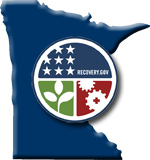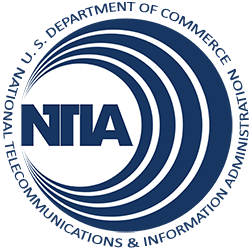The C.K. Blandin Foundation plans to launch the Minnesota Intelligent Rural Communities initiative, a multi-sector, comprehensive approach to sustainable broadband adoption targeting residents, small businesses, local governments, and critical services providers in rural Minnesota. The initiative expects to reach each of Minnesota’s 80 rural counties through education, training, technical assistance, and by removing barriers to broadband adoption. The project anticipates training as many as 2,500 individuals in computer literacy, online education, and workforce development, and plans to distribute 1,000 affordable refurbished computers to low-income, rural Minnesota residents. Funding will support the development of institutional broadband applications for schools and health care facilities to help increase broadband adoption. The U.S. Department of Commerce’s Economic Development Administration (EDA) Center at the University of Minnesota, Crookston will help track the impact of the project, including the number of subscribers generated.
Minnesota

| Grantee | Total Award | Type |
|---|---|---|
| C.K. Blandin Foundation | $4,858,219 | Sustainable Adoption |
| Communication Service for the Deaf, Inc. | $14,988,657 | Sustainable Adoption |
| Connected Nation (Minnesota) | $4,470,035 | Broadband Data & Development |
| County of Carver | $5,995,600 | Infrastructure |
| Enventis Telecom, Inc. | $16,822,437 | Infrastructure |
| Merit Network, Inc. | $69,639,291 | Infrastructure |
| Mission Economic Development Agency | $3,724,128 | Public Computer Centers |
| One Economy Corporation | $28,519,482 | Sustainable Adoption |
| Portland State University | $3,318,031 | Sustainable Adoption |
| Regents of the University of Minnesota | $2,862,333 | Public Computer Centers |
| University Corporation for Advanced Internet Development | $62,540,162 | Infrastructure |
| Zayo Bandwidth, LLC | $13,382,593 | Infrastructure |
Broadband’s ability to expand educational and employment opportunities is especially meaningful for Americans who are deaf or hard of hearing, a community that faces unique challenges in education and that suffers from a rate of unemployment much higher than the national average. Communication Service for the Deaf, Inc. (CSD) intends to expand broadband adoption among people who are deaf and hard of hearing and provide them with online tools to more fully participate in the digital economy. The project proposes to employ a combination of discounted broadband service and specialized computers, technology training from an online state-of-the art support center customized to the community’s needs, public access to videophones at anchor institutions from coast to coast, and a nationwide outreach initiative. Thousands will gain online access to all the Internet has to offer, including sign language interpreters, captioned video services, and other content and functionalities designed especially to advance their educational, employment, and healthcare interests.
Project Components
State Broadband Capacity Building:
This project will support the work of the 15 member Minnesota Broadband Advisory Task Force in carrying out its functions, including the production of its annual progress report benchmarking progress toward meeting Minnesota’s 2015 broadband goals of a minimum of 10-20 MB to all residents and businesses.
Technical Assistance:
This funding will support two major activities in Minnesota: an annual broadband summit and an in-depth county-level research that will be peer reviewed by a qualified Minnesota-based marketing and research institution.
Data Collection, Integration, and Validation:
This project was originally funded for broadband planning activities and two years of data collection. In September of 2010, this project was amended to extend data collection activities for an additional three years and to identify and implement best practices.
The Carver County Open Fiber Initiative, a partnership between the county, affiliated city governments, and Jaguar Communications, a for-profit small business, proposes to build a high-speed fiber optic network across the south-central Minnesota county, bringing advanced services to its key community organizations. The project plans to connect schools, libraries, and community colleges, including the Waconia Library and the South Metro campus of the Dunwoody College of Technology, to improve educational services, distance learning, and remote teaching. The project also proposes to construct 121 miles of new fiber that will be open to as many as nine last-mile providers in the region in order to improve commercial broadband availability and adoption.
Many key community organizations located in rural Minnesota towns such as Detroit Lakes, Luverne, Hinckley, and Wabasha report limited access to low cost high-speed broadband services. Enventis Telecom, as part of the Greater Minnesota Broadband Collaborative, proposes to construct a brand new 428-mile fiber network that would provide middle-mile service at speeds of up to 10 Gbps and enable connections to anchor institutions and businesses across a 23-county area of the state. The project intends to expand distance learning and training opportunities throughout the state, while offering high-capacity services to community organizations in the area.
Among the anchor institutions already committed to working directly with the grantee and its partner the State of Minnesota’s Office of Enterprise Technology are the University of Minnesota at Duluth, Little Falls Police Department, and St. Gabriel’s Hospital.
Community anchor institutions in rural northern Michigan often face high costs and/or limited Internet technology options, resulting in inadequate service for organizations in this economically distressed region. Merit Network proposes to address this problem by constructing a 1,210-mile fiber network offering speeds between 100 Mbps and 10 Gbps in Michigan’s Upper Peninsula and Lower Northern Peninsula, with additional connections to research and educational networks in Green Bay, Wisconsin and Duluth, Minnesota. Merit, whose existing network serves many of Michigan’s government, public safety, and health care organizations, plans to connect 61 anchor institutions, including public universities, community colleges, K-12 schools, libraries, health research institutions, Michigan’s Next Generation 911 system, and various local governments.
The Mission Economic Development Agency, in collaboration with the National Association for Latino Community Asset Builders and a national network of Latino-serving economic development organizations, plans to create 12 new public computer centers and expand five existing ones in 13 communities throughout the United States. Each center expects to operate on the project’s centrally managed network and provide computer training and adult education to a low broadband adoption, high unemployment target population through a standardized English-Spanish training curriculum. The project expects to add a total of 263 new workstations and replace 37 existing workstations, enabling the centers to serve an additional 2,500 users per week and train an estimated 3,000 users per year. Broadband capabilities at each center will be increased to speeds of 1.5 Mbps. Public computer centers funded through this grant will be located in Phoenix, AZ; Canoga Park, Los Angeles, and San Francisco, CA; Del Norte, CO; Blackfoot, ID; Wheaton, MD; Minneapolis, MN; Kansas City, MO; Anthony, NM; Philadelphia, PA; and San Antonio and Laredo, TX.
The 21st Century Information and Support Ecosystem project proposes to implement a comprehensive program of computer training, wireless Internet access, broadband awareness marketing, and online content and applications to residents of 159 affordable and public housing developments and low-income communities in 50 cities and towns across 31 states and the District of Columbia. The project plans to implement four principal programs: training 2,500 youth to become “Digital Connectors” who will then provide digital literacy training to others in their communities; deploying localized broadband networks in public housing developments; developing online content and applications aimed at low-income, low-literacy audiences.
Partnering with adult literacy and basic education organizations with long histories in their respective states, Portland State University proposes to lead the Learner Web Partnership project to increase broadband use among low-income, minorities, and other vulnerable populations by teaching digital literacy along with English literacy, educating participants to become informed consumers, and providing access to career paths in the digital economy. Project partners will deploy the existing Learner Web software, which has been cited by the U.S. Department of Education’s Office of Vocational and Adult Education as a noteworthy adult education program, for more than 20,000 residents. Instructional materials will address topics including use of broadband for job searches, education and health information, and smart consumer practices. The project proposes a distinctive focus on the needs of adult learners using an approach that combines self-paced learning with live tutorial support.
The Broadband Access Project proposes to enhance broadband awareness and use for residents in four federally-designated poverty zones in Minneapolis and St. Paul. These enhancements plan to better serve vulnerable populations, including African-Americans and Hmong and Somali immigrants whose needs are not currently being met because of financial, educational and technological constraints. The project plans to establish one new public computer center and improve 10 existing computer centers, adding 93 new workstations and replacing 49 existing workstations. The project intends to provide broadband speeds of at least 16 Mbps to these locations. The Broadband Access Project expects to provide broadband training to vulnerable, low-income, minority and immigrant populations to promote education, health care, workforce preparation and community revitalization. Plans include providing training to residents, not-for-profit organizations and small businesses to help create jobs and develop the skills necessary to compete in today’s economy. The project expects to train 17,000 people over the life of the grant. In addition, the Minnesota Multicultural Media Consortium plans to conduct culturally-specific outreach and translate project materials into languages spoken locally.
As part of a longstanding project to connect essential community anchor institutions across the country, and facilitate closer collaboration and long-term benefits for education, research, healthcare, public safety, and government services, the University Corporation for Advanced Internet Development (UCAID) proposes a comprehensive 50-state network benefitting approximately 121,000 community anchors. The project proposes a large-scale, public-private partnership to interconnect more than 30 existing research and education networks, creating a dedicated 100-200 Gbps nationwide fiber backbone with 3.2 terabits per second (TBps) total capacity that would enable advanced networking features such as IPv6 and video multicasting. The project plans to connect community anchors across all disciplines into virtual communities with shared goals and objectives, including colleges, universities, libraries, major veterans and other health care facilities, and public safety entities, with additional benefits to tribes, vulnerable populations, and government entities.
The Connect Anoka County Community Broadband Network, a partnership between Zayo Bandwidth and Anoka County, Minnesota, plans to make high-speed broadband services available to governments, businesses, community anchor institutions, and local Internet service providers in Anoka County and parts of nearby Isanti and Ramsey Counties. Anoka County is one of the poorest counties in the Twin Cities metro area, with significantly higher unemployment and foreclosure rates than most of Minnesota. Many areas of the county lack broadband speeds sufficient to maximize educational opportunities, government services, and public safety responsiveness. To address this need, the project plans to build a new 286-mile fiber network that will provide speeds between 100 Mbps and 10 Gbps.
